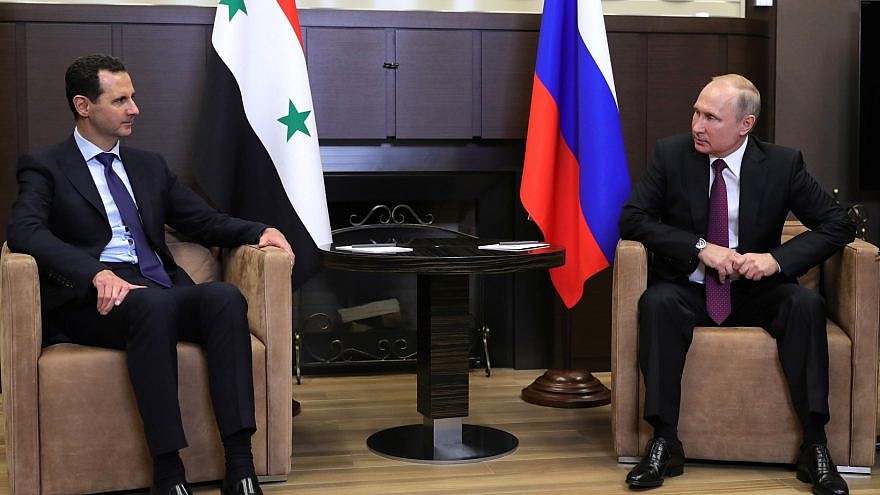Russia warned Israel on Wednesday to stop its “arbitrary” airstrikes in Syria, saying that they should be “ruled out.” This comes just days after Israel launched a massive attack on numerous Iranian targets in Syria such as a site at Damascus International Airport, munition storage facilities, an Iranian military training camp and an Iranian intelligence site.
Monday’s strikes were in response to Iranian fighter jets firing a surface-to-surface missile at the Israeli Golan Heights the previous day.
It remains unclear if the statement by Russia means that it will actively confront Israeli jets over Syrian airspace. Both countries have set up mechanisms of cooperation to avoid direct confrontation in Syria as they pursue their separate missions. However, that working relationship has come under strain in recent months following the accidental downing of a Russian plane by Syrian forces following an Israeli airstrike in October.
Former Pentagon official Michael Rubin told JNS that despite the warning, “Russia and Israel know each other’s red lines well, and Putin and Netanyahu have a very good working relationship, even if they do not see eye to eye.”
“In this case,” he said, “I suspect there is difference between what Russia must say publicly to assuage Iran and Syria, and what they are probably telling the Iranians privately. Publicly, it’s easy to chew out Israel; everyone does. Privately, the Russians are probably telling the Iranians that Moscow cannot protect them if they continue to provoke Israel or enhance Hezbollah’s already robust armaments.”
Anna Borshchevskaya of the Washington Institute for Near East Policy told JNS that Wednesday’s development stems from Moscow holding Israel responsible over a Russian plane that was shot down in September.
“Israel, of course, had absolutely no role in the downing of the Russian plane; this is ludicrous,” she said. “But in an attempt to save face and use this incident as an opportunity to assert further dominance, Moscow continues to hold Israel responsible. Recall also that Russia brought the S-300 to Syria after this incident.”
She continued, “I think we’re still in the middle of events associated with the downing of the Russian plane. The story is not yet over.”
“It’s also important to remember that for all of Putin’s efforts to present himself as a neutral broker in the Middle East with ability to talk to everyone, it is the Shia forces with whom Putin has the closest partnership. Zakharova’s comments are a reminder of this,” she added.
The Hudson Institute’s David Satter told JNS that “Russia is continuing to play a double game, trying to demonstrate its support for its Iranian and Syrian allies, but not going too far in confronting Israel. The S-300s sent to Syria so far have not been used, and the wording here is very conditional. The situation is nonetheless very dangerous. Moral considerations or seemingly friendly relations with Israel will be no barrier to Russia throwing its weight behind Syria and Iran if the Russian leaders decide that that is in their interest.”


























